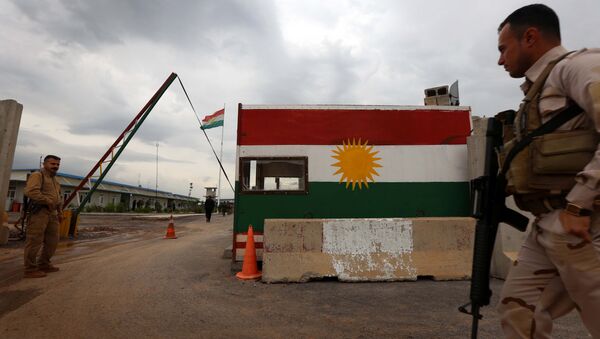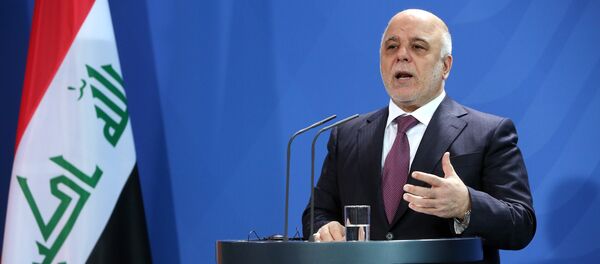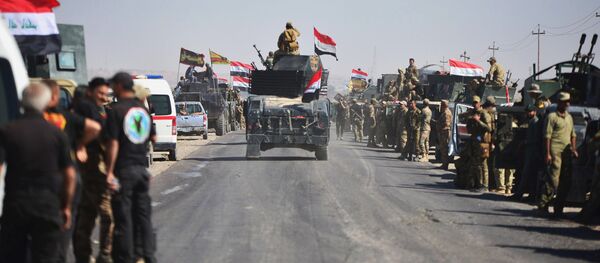WASHINGTON (Sputnik) — The US State Department on Monday called on the authorities of Iraq and Iraqi Kurdistan to avoid provocations around the Kirkuk province and coordinate military activities.
Iraqi Kurdistan's Prime Minister, Masoud Barzani held a referendum on independence from Baghdad last month despite regional and international opposition, triggering a stream of hostile rhetoric and measures from regional powers.
Turkey and other countries bordering Iraqi Kurdistan fear that the formation of an independent Kurdish state in northern Iraq could accentuate Kurdish efforts for independence domestically.
US SUPPLIED WEAPONS TO BOTH IRAQ, KURDS
Nonviolence International Director Michael Beer told Sputnik that he welcomed the State Department’s call, but warned that the crisis had been caused by US policies in the first place and that those policies, especially the simultaneous supply of weapons to both Iraq and the Kurds, were still continuing.
"The State Department's position is acceptable. The US may be helping to discourage killing. We have destroyed Iraq and have an obligation to help it recover. Unfortunately, we have been arming both the Iraqi government and the Kurds," Beer said.
"We need to be playing a mediating role… but with sanctions against Iran, and taking sides with the Saudis, we cannot play that unifying peacemaking role in Iraq or the region," he said.
US LACKS CREDIBILITY AS MEDIATOR
Political commentator and author Dan Lazare told Sputnik that he agreed that US diplomacy was not capable of effectively mediating the current dispute given the history of Washington’s policies in the region.
"I think it's very difficult at this late date for the State Department to fix the mess that it itself created," he said.
For years, the US backed Barzani as leader of the Iraqi Kurds while at the same time supporting the Baghdad government in the south, Lazare recalled.
"A collision between the two was inevitable, but the Americans buried their head in the sand and prayed that it would never come. Now that it has, [the US government] is stuck," he said.
Washington was caught on the horns of a policy dilemma, Lazare explained.
If the United States sides with Barzani, "it risks throwing the Iraqi government into the arms of Iran. If it sides with the Iraqi government, it risks alienating its Kurdish allies in Syria," he said.
Lazare predicted that the US government would try and avoid making any hard choice and would continue with ineffective efforts to create a new compromise between Iraq and the Kurds.
However, US policymakers were not prepared to deal with a crisis that escalated into full-scale conflict between the Kurds and Iraq, Lazare cautioned.
"What will [Washington] do if major fighting breaks out between Turkish-backed rebels and the Kurdish-backed SDF [Syrian Democratic Forces] in Syria, between Russia and the SDF, or between Israel and the ‘Shiite crescent’ in general?" he asked. "If the conflict grows messier by the week, it's because US policy grows ever more contradictory."
"While that should happen, something tells me it won't happen for a long, long time," he said.
In response to the September referendum, Turkey and Iran severed trade ties with the Kurdish Regional Government (KRG) in a number of strategic economic areas, particularly the energy sector, which generates a large chunk of the KRG's budget.
Last month, Iran banned the transportation of refined crude oil products to and from Iraqi Kurdistan.



